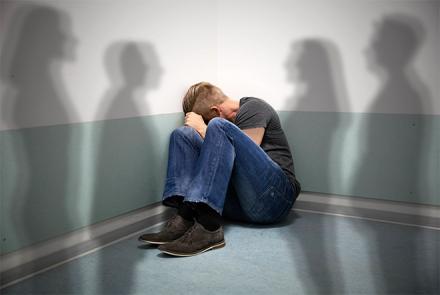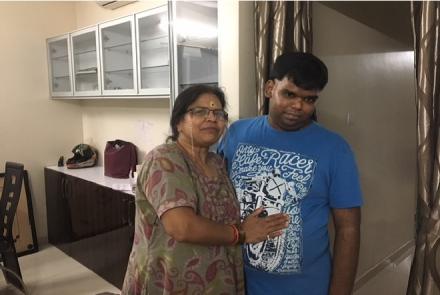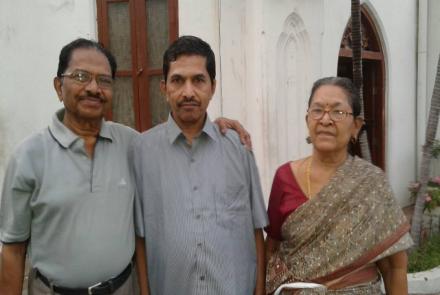
Schizophrenia is one of the ten most disabling illness affecting individuals. Manisha Shastri answers some of the common and frequently asked questions that people have about Schizophrenia.
Schizophrenia is a mental illness affecting 1 per cent of the global population. It affects individuals irrespective of gender, race, age, socio – economic class and geographical location. The World Health Organisation (WHO) has listed Schizophrenia as one of the ten most disabling disorders affecting individuals.
Currently there is no known cure for schizophrenia; it is chronic in nature. However, a majority of individuals can be expected to recover to a point of functioning which is satisfactory. Psychiatrists and psychologists across the world are engaged in trying to better understand the condition and find a cure for it.
While there is insufficient information on Schizophrenia, there are also many gaps in awareness about the condition. Persons with schizophrenia are known to experience auditory and visual hallucinations alongside depression and psychosis; there may also be other associated illnesses or disabilities, however, there are several myths about the illness.
Schizophrenia Awareness Week is observed each year in order to spread awareness regarding this complex condition and to break the stigma associated with it. Here are answers to frequently asked questions (FAQ’s) on Schizophrenia to help spread more awareness!
Q. What Is Schizophrenia?
A. Schizophrenia is a chronic, disabling mental illness marked by a variety of cognitive and perceptual difficulties. Persons with schizophrenia may face difficulties in communicating, carrying out activities of daily living, experience hallucinations, delusions, suicidal feelings, disorganised thinking and speech.
Q. What are the various kinds of Schizophrenia?
A. There are five sub – categories of Schizophrenia
- Paranoid schizophrenia: Suspiciousness and paranoia, persecution or grandiosity, or a combination of these
- Disorganized schizophrenia: incoherent thoughts, but not necessarily delusional.
- Catatonic schizophrenia: withdrawal, negative affect and isolation, also marked psychomotor disturbances.
- Residual schizophrenia: delusions or hallucinations may go away, but motivation or interest in life is gone.
- Schizoaffective disorder: symptoms of both schizophrenia and a major mood disorder, such as depression.
Q. Can Schizophrenia be cured?
A. No, presently there is no cure for schizophrenia. It is a condition that can be treated but not cured. Provided with appropriate support, therapy and rehabilitation, persons with Schizophrenia can function in a satisfactory fashion and lead meaningful lives.
Q. Do all individuals with Schizophrenia have ‘split personality’?
A. No, not all individuals with schizophrenia have ‘split personality.’ Yes, some individuals with Schizophrenia may have a Dissociate Identity Disorder (DID) or ‘split personality’ as a primary or secondary disability, however not all individuals with Schizophrenia suffer from DID.
The causes, symptoms and manifestations of the two illnesses also vary.
Q. At what age do the symptoms of Schizophrenia appear?
A. The first symptoms of Schizophrenia can appear between the ages of 16 to 30 and it is rare for people to acquire it after the age of 45.
Schizophrenia among children is rare, but research and awareness regarding childhood schizophrenia is on the increase.
Q. Is Schizophrenia caused due to substance abuse?
A. No. The causes of schizophrenia are not yet known and fully understood. They are likely to be a combination of hereditary, environmental and other factors. Some individuals are born with a predisposition to the illness, which may be aggravated or triggered by substance abuse. However, substance abuse alone does not cause Schizophrenia.
Q. How is Schizophrenia diagnosed?
A. Diagnosing schizophrenia is usually difficult, since the symptoms of schizophrenia are often similar to other mental illnesses, like bipolar disorder, depression and psychosis. Usually a combination of methods is used to determine the diagnosis on schizophrenia.
Physical examinations: to help rule out other problems which may be causing symptoms and to check for any pre – existing conditions and complications which may be there.
Tests and screenings: these are used to help rule out conditions with similar symptoms, and to check for substance use/ abuse. As a part of tests and screenings, doctors may also recommend MRI and CT scans, to rule out any other factors.
Psychiatric evaluation: This is undertaken by a mental health professional, ideally a psychiatrist during which he/she may observe behaviour, inquire about the individual’s thoughts, moods, feelings of self harm and other possible symptoms being experienced. The process also involves taking down personal and family history and talking to other family members/ care – givers.
After the above the doctor may refer to the Diagnostic and Statistical Manual of Mental Disorders (DSM-5), published by the American Psychiatric Association, before making the final diagnosis.
Q. How is Schizophrenia treated?
A. Since schizophrenia is not curable and only treatable, most treatment focuses on managing the symptoms of the illness. Since different individuals respond differently to anti – psychotic drugs, the initial treatment is often based on trial and error until an effective drug or combination is found. Generally, anti-psychotic medications reduce agitation and hallucinations within days and delusions within a few weeks. Many patients report significant improvement in symptoms by week six of their treatment.
The most effective and primary treatment known for Schizophrenia is through psychiatric drugs, which could be paired up with psychotherapy, behavioural therapy, occupational therapy, art therapy, etc.
These help improve motivation, communication and self-attention; also educating individuals on coping mechanism which help persons with Schizophrenia attend school, work and socialise.
Individuals receiving psychosocial rehabilitation are known to have fewer relapses and hospitalizations. Family and community support also play a vital role in the treatment of schizophrenia.
In case of any further queries and question, it is best recommended that one consult a doctor.
Manisha Shastri is Social Worker specialising in Disability and Mental Health rehabilitation; she is an alumnus of TISS, Mumbai.
















